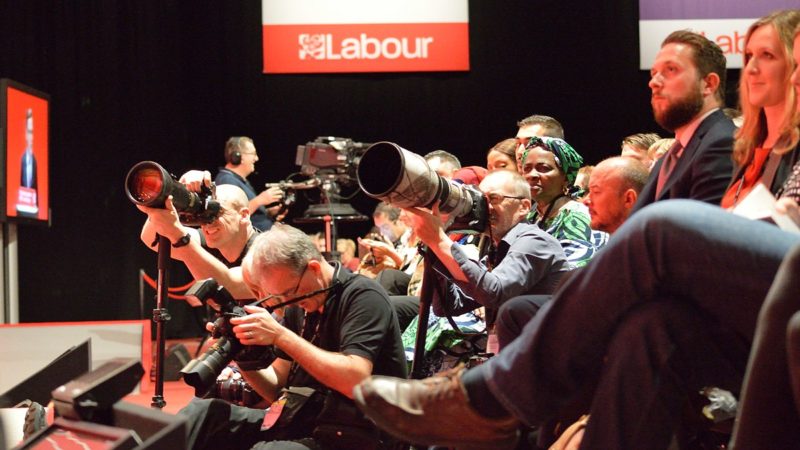Regardless of the party's row over antisemitism, Labour will need a stronger approach to tackling prejudice says Lester Holloway.

News that Labour is being investigated by the equalities watchdog over anti-Semitism dismayed many activists. But this probe could actually prove beneficial for the party in the long run and sharpen the approach to tackling discrimination in society. Let me explain.
It will be the first time the public is exposed to a report that should consider all the evidence fairly – both the claims of anti-Semitism and what action is being taken by general-secretary Jennie Formby to combat the cancer. The full story about what is happening might just get an airing.
Given our volatile politics, Labour could be the political bosses of the Equality and Human Rights Commission (EHRC) by the time the investigation is finished. But the watchdog’s credibility for producing objective research is on the line: indeed, the episode raises fundamental questions about how the state agency goes about its’ job of tackling discrimination in society as well as how effectively Labour is tackling anti-Semitism.
I’ve worked with the EHRC in the past and have seen their reluctance to mount investigations – not least because of funding cuts from central government. In 12 years of its existence the EHRC has only ever completed one full investigation, against the Metropolitan Police, plus nine smaller inquiries. The Met probe, which took three years, is interesting because, like Labour and anti-Semitism, it centres on the handling of complaints, and might be the template the watchdog follows again.
Huda Elmi, who sits on Labour’s NEC, caused ripples by suggesting the EHRC should be abolished. Whether or not this was the right moment to make the point, Huda was arguing Britain needed a new approach to the current failed one, which largely lumps the ‘strands’ of age, disability, gender reassignment, marriage and civil partnership, pregnancy and maternity, race, religion or belief, and sexual orientation all under one regulator. She is right.
When Tony Blair’s administration established the EHRC it wasn’t without controversy. Anti-racist groups joined forces with Diane Abbott, and the former Chair of the now abolished Commission for Racial Equality (CRE) Lord Herman Ouseley, to warn of a “hierarchy of equalities.” Today we see evidence that Black and Minority Ethnic (BME) working-age citizens are twice as likely to be unemployed as their white counterparts, and that the economy is losing £24 billion a year (1.3% of GDP) as a result of racism in employment.
The equalities framework – the law and its’ enforcement body – has failed to make a dent on the big race issues and it needs radical reform. Since the first Race Relations Act in 1965 some have argued things would be better if only the law was implemented as intended. If only. Yes, the EHRC needs more resources – it went from hopelessly underfunded from birth to near decimation under austerity – but if a Labour government just plastered over the cracks with cash that would be both unimaginative and a dereliction of responsibility.
Labour needs a serious debate about strategies tacking racial inequality before reaching power. This is crucial for tackling anti-Semitism too; Labour can and should strengthen the law to make Britain the safest place in the world to be Jewish and, in the process, level-up protection against all other forms of racial and religious discrimination.
Labour would reopen the 2010 Equality Act in government because we want to restore the socio-economic public duty (recognising class-based discrimination), enable all-BME shortlists for parties, and extend equalities ‘duties’ to the private sector. There are also other reasons like extending the Act to schools and recognising intersectionality, the interaction between different forms of oppression.
While we’re at it Labour should flesh out a vision for how a transformative and radical government will make a real difference on tackling systemic racism in society. That means considering separate commissions for each ‘protected characteristic’ in recognition of the fact that different forms of discrimination manifests in different ways, and require tailored strategies to deal with it.
Labour now takes a more holistic approach recognising that government must take a lead in tackling racial injustice everywhere. This demands a dedicated equalities department with its own ministers and a framework that combines tougher laws, more effective enforcement, better preventative work across the public and private sector, and greater efforts to change public attitudes.
Past reliance on Whitehall targets and tick-boxes is a failed approach. After a short period of progress after the Stephen Lawrence (Macpherson) inquiry and Race Relations (Amendment) Act 2000, the gains were rolled back because the ministers claimed all the Macpherson recommendations had all been ticked-off, job done. That’s when the EHRC came into being.
The old CRE was not perfect but their often-controversial public attitudes billboard campaigns made greater headway into changing mindsets than the EHRC has. Separate watchdogs for each equalities subject would once again work to change public attitudes as well as dismantling systemic discrimination through guidance, monitoring and enforcement.
Labour must not shy away from this important debate due to the EHRC investigation. Let’s use it to raise our game, on tackling anti-Semitism internally and sharpening our vision for how we tackle discrimination of all kinds in power.
Lester Holloway is a Labour and Momentum member in Watford.
To reach hundreds of thousands of new readers and to make the biggest impact we can in the next general election, we need to grow our donor base substantially.
That's why in 2024, we are seeking to generate 150 additional regular donors to support Left Foot Forward's work.
We still need another 124 people to donate to hit the target. You can help. Donate today.



